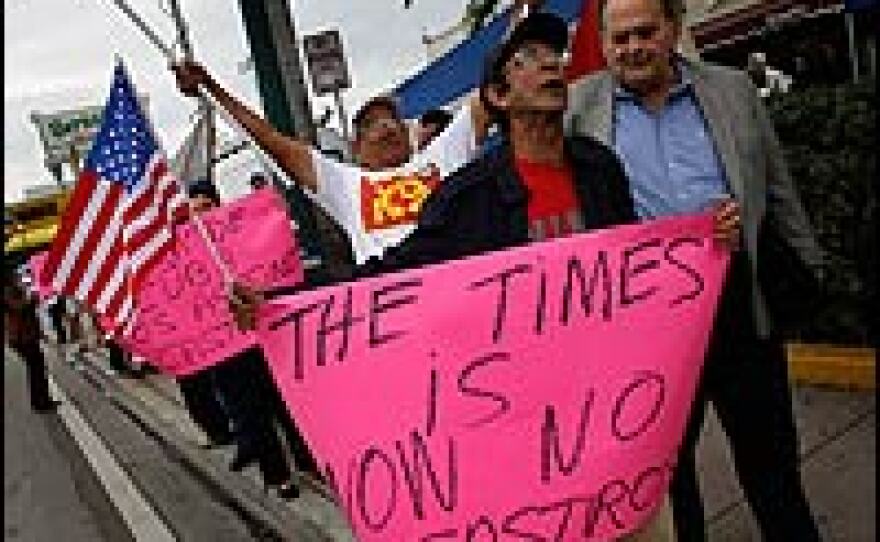
Miami's large and occasionally boisterous Cuban-American community greeted the news of Fidel Castro's resignation with uncharacteristic restraint Tuesday, expressing far more caution than optimism.
But the newer arrivals expressed hope that it will trigger a shift in U.S. policy toward Havana.
The Cuban-American community has been through this before — most recently in the summer of 2006 when Castro temporarily handed over power to his brother Raul.
At that time, rumors circulated that Fidel was dead, and thousands of Cuban-Americans took to the streets of Miami's Little Havana district to celebrate. Those rumors, of course, tuned out to be premature, so this time the celebrations have consisted of little more than a few stray shouts of "Free Cuba!"
"What is there to celebrate?" said Andy Gomez, Senior Fellow at the Institute for Cuban and Cuban-American Studies at University of Miami. "The celebration will come once these two men are out of the picture," he said, referring to Castro and his 76-year-old brother, Raul. "We exiles are going to have to be very patient and tolerant."
Gomez, echoing a view widely shared by many Cuban exiles, doubts whether Castro is really stepping down.
"I do not believe that Fidel is going to completely step aside and sit under a palm tree sipping mojitos," he said. "He will still be affecting the major decisions of Cuba, so this doesn't represent any change. It's more of the same with a different face."
Joe Garcia, a longtime leader in the Cuban-American community and a Democratic candidate for Congress, wasn't so quick to dismiss the news from Havana.
"The world's longest-serving dictator has just stepped down and handed over power. The national project of Cuba, which was Fidel's vision, is now finished. It's something — a small something, but still something," he said.
Castro would never give up power voluntarily, said Garcia, and so his resignation is significant.
Castro, 81, said he would not return as head of state 49 years after he seized power in an armed revolution that sent tens of thousands of Cubans into exile. He has not appeared in public since undergoing stomach surgery nearly 19 months ago.
The Cuban-American National Foundation, a leading anti-Castro exile group, said Castro's resignation "opens a new chapter in the history of the revolution and the history of the Cuban people."
"After 50 years, there is no more one-man rule in Cuba, because his successors cannot maintain the same power and the same position that he attained during the last 50 years," said Francisco "Pepe" Hernandez, the group's president.
About 1.5 million Cubans and Cuban-Americans live in the United States, two-thirds of them in Florida and the majority in Miami-Dade County, according to the U.S. Census Bureau.
Traditionally, they have opposed any suggestion of rapprochement with Castro's government. But lately, some exiles — those who have arrived relatively recently — have questioned this hard-line strategy. This group has argued that limited contact with Havana, such as cultural exchanges, could hasten the demise of the communist regime there.
Indeed, the reaction to Castro's resignation reveals small fissures among the Cuban exiles living in the United States. Some newer members of the community have expressed hope that U.S. policy toward the country will change.
During his two terms, President Bush has tightened a decades-old economic embargo against Castro's government, making it more difficult for Cuban-Americans to visit their homeland or send money there.
Some newer arrivals, who are much more likely to have family back in Cuba, have opposed those restrictions. Still, the Bush administration is not likely to loosen the embargo now, according to Gomez, of the University of Miami.
"Nothing will take place until Fidel and Raul are out of the picture," he says.
Copyright 2022 NPR. To see more, visit https://www.npr.org. 9(MDAzMjM2NDYzMDEyMzc1Njk5NjAxNzY3OQ001))







